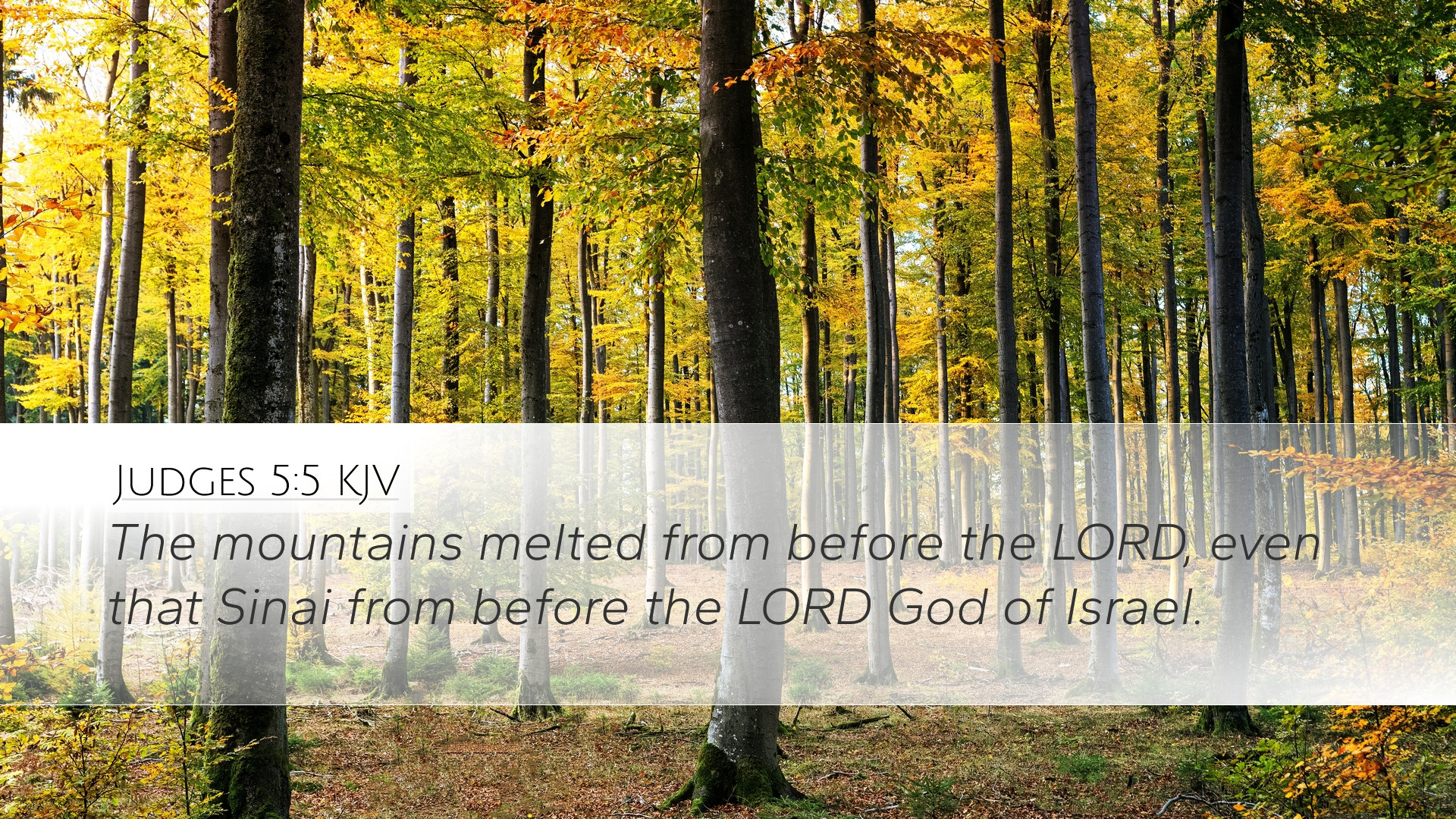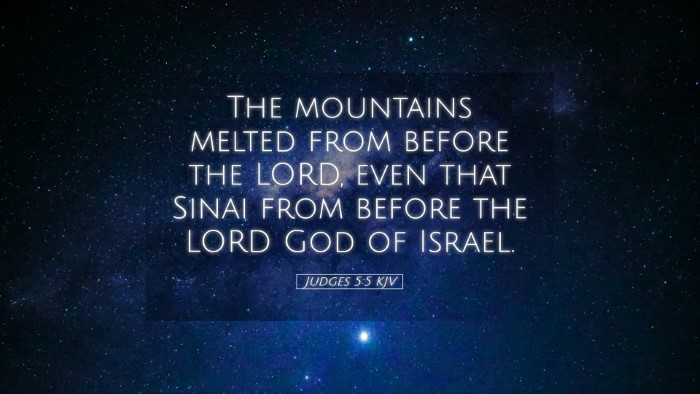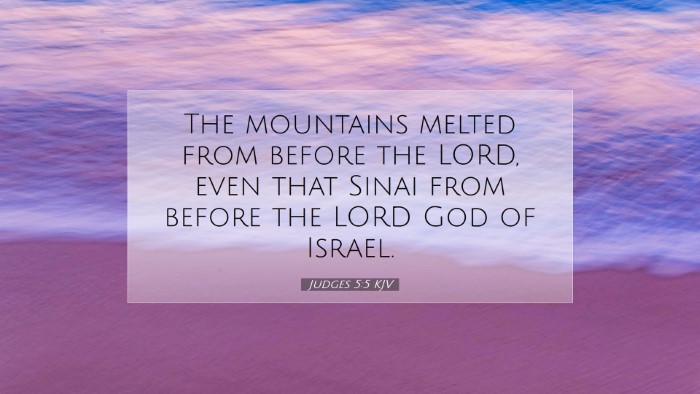Commentary on Judges 5:5
Introduction
The verse Judges 5:5 states: “The mountains melted from before the LORD, even that Sinai from before the LORD God of Israel.” This verse is part of the song of Deborah, which celebrates God's deliverance of Israel from their enemies. The imagery of the melting mountains points to the profound power of God and serves as a reminder of His sovereign authority over creation.
Context of Judges 5:5
This verse is nestled in the broader context of Chapter 5, which is a poetic account of the victory over Sisera and the Canaanites. It contrasts with Chapter 4, which narrates the historical facts surrounding the battle. The song, attributed to Deborah and Barak, vividly encapsulates the themes of divine intervention, courage, and the consequences of Israel's faithfulness or lack thereof.
Insights from Public Domain Commentaries
Matthew Henry's Commentary
Matthew Henry emphasizes the figurative language used in this verse to underline God’s majesty and the frightening nature of His presence.
- Metaphorical Interpretation: The "melting mountains" suggest that even the mightiest of earthly structures are powerless against the will of God. Mountains often symbolize strength and permanence, yet here they appear weakened before the divine.
- Historical Reference: Henry points to the similarities with God’s revelation at Sinai, where the mountain shook and burned, indicating that God’s presence can shake the very foundations of the earth.
Albert Barnes' Notes on the Bible
Albert Barnes offers a detailed exegesis of the phrase.
- Divine Authority: He argues that this verse illustrates God’s power not only in Israel's historical context but also as an eternal principle. The mountains melting symbolize the transient nature of earthly dominion compared to divine sovereignty.
- Theological Implications: Barnes asserts that God's judgment and presence can disrupt natural order, reinforcing His role as the ultimate judge and ruler of the universe.
Adam Clarke's Commentary
Adam Clarke delves into the implications of God’s power over nature as reflected in this verse.
- Symbol of Fear: Clarke notes that the melting of mountains serves as a metaphor for fear and reverence that Israel felt towards God. This fear then translates into praise and worship following their victory.
- Victory Anthem: He situates this verse within the broader theme of celebration after victory, acknowledging that the presence of God is both a cause for fear and a source of strength for His people.
Theological Themes in Judges 5:5
Drawing from these insights, several poignant theological themes emerge:
- God’s Sovereignty: The verse serves as a declaration of God’s absolute authority over all creation. Pastors and theologians might reflect on how this notion provides comfort and confidence in God’s plans.
- Nature’s Response to God: As displayed through the imagery of mountains melting, nature itself acknowledges the presence of its Creator. This invites a deeper understanding of how all of creation is intertwined with God's will.
- The Power of Worship: Judges 5:5 highlights how victorious worship serves as a vehicle for remembrance of God’s past faithfulness, encouraging believers to engage in the practice of celebrating God’s providence in their lives.
Application for Contemporary Believers
In light of this commentary, the insights provided can lead to several applications:
- Encouragement in Trials: Understanding the might of God as depicted in this verse can bolster faith during challenging seasons, reminding believers of God's ultimate control over the circumstances of life.
- Call to Worship: The imagery encourages a lifestyle of worship, inviting believers to respond to God’s revelations with praise and thanksgiving, much like Deborah and Barak did post-victory.
- Awareness of God’s Presence: The reminder of God’s fearsome presence can lead to a reverent awe that fosters deeper worship practices among both individuals and congregations.
Conclusion
Judges 5:5 reminds us of the overwhelming power and authority of God. It shines a light on how the physical world responds to the divine—a theme that resonates through the ages. For pastors, students, theologians, and Bible scholars, reflecting on these insights from notable commentators enhances our understanding and appreciation for the depth of Scripture. The call to recognize God’s sovereignty is as relevant today as it was in the days of Deborah, inspiring a legacy of faithfulness and reverence in worship.


